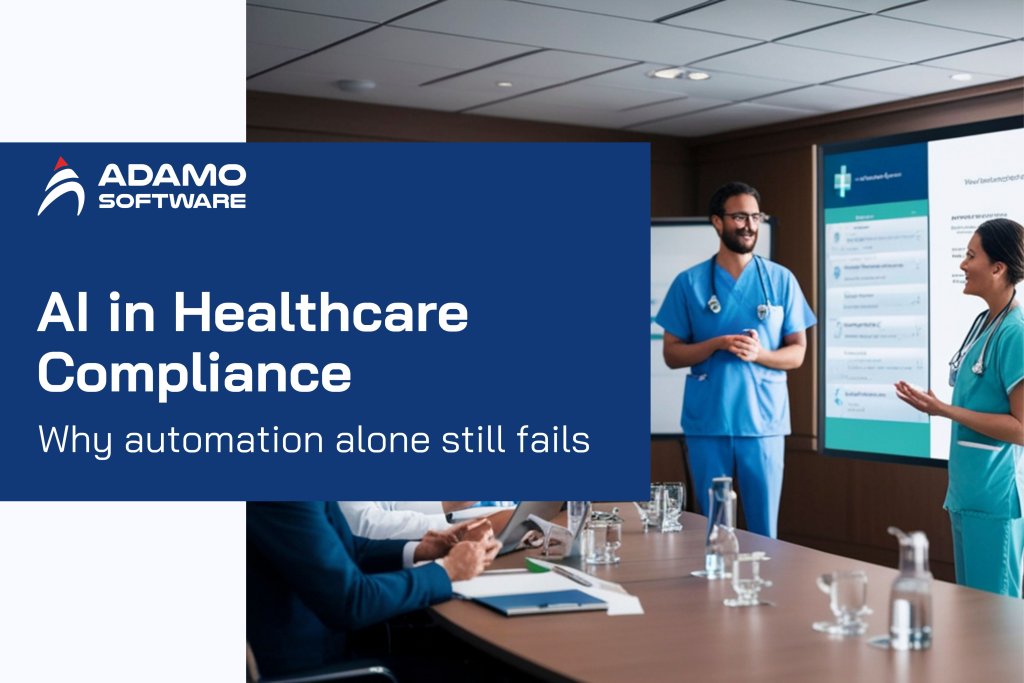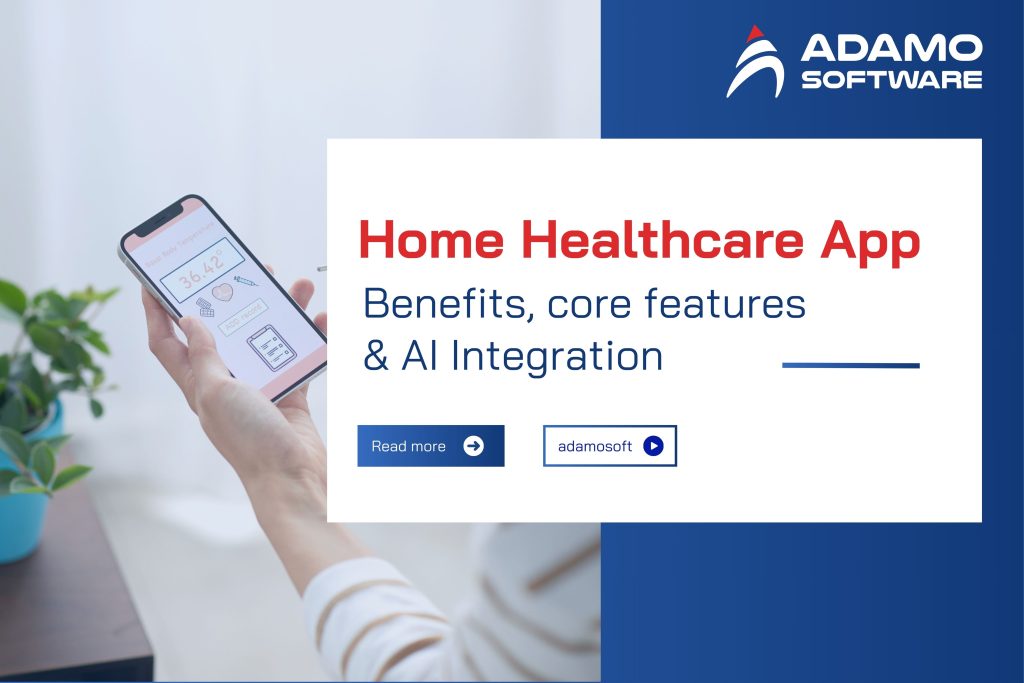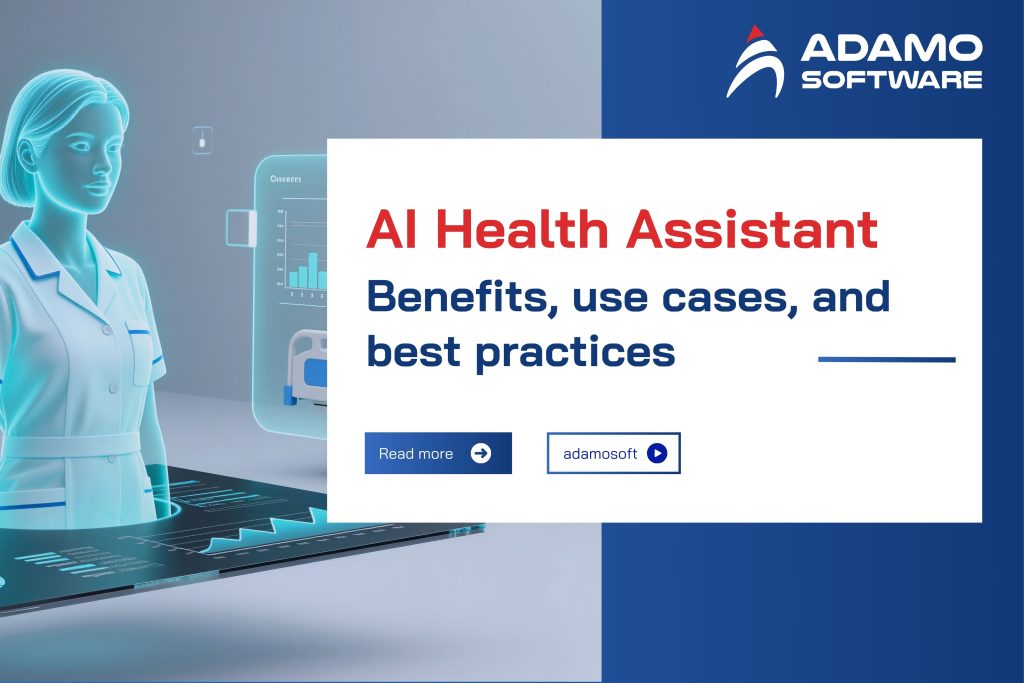Personalized Medicine A–Z: Terms, Trends & Breakthroughs
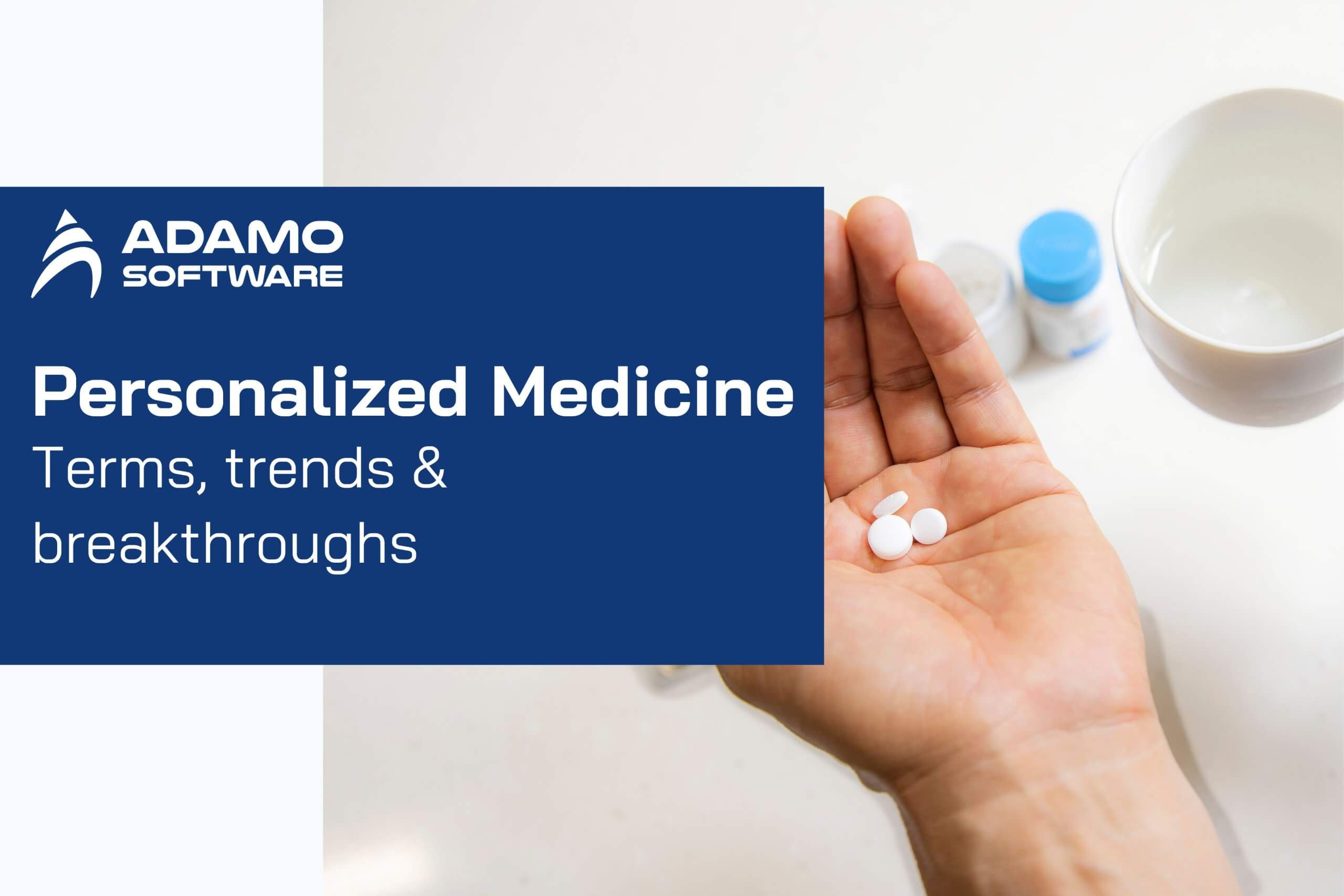
Explore personalized medicine in this complete guide. Learn its benefits, differences from traditional care, and how Adamo Software powers its future.
The healthcare world faces rapid changes. Therefore, personalized medicine has become an emerging, robust methodology that reformulates illness prevention, diagnosis and treatment approaches. Medical treatment plans today are customized from person to person based on individual genetic profiles, lifestyle patterns, and environmental conditions. The alteration of medical practice enables doctors to identify conditions accurately, coupled with precise treatment strategies. As a result, doctors can create superior health results.
The A-to-Z guide will explain the true definition of personalized medicine. We will also provide its distinctions from standard healthcare practice with its global market momentum. The guide explains the main benefits of personalized medicine, the technological and ethical challenges, and the forecasted developments in personal healthcare. We will examine why Adamo Software emerged as a foremost provider of innovative personalized medicine solution development.
I. What is personalized medicine?
The contemporary healthcare method, personalized medicine, treats patients individually by recognizing their distinct characteristics. Personalized medicine distinguishes itself from standard medical practices through individual genetic, environmental, and lifestyle assessments that support identifying effective disease prevention and treatment solutions. The medical staff can select treatment methods with higher chances of success while bypassing potentially harmful side effects.
Through modern analytic tools like data analysis systems with genetic testing, researchers can establish disease development differences between individual patients. The response of different individuals to the same illness requires separate therapeutic plans because of variations in their physiologic reactions. Advancements in personalized medicine serve to reveal such differences because they allow clinicians to comprehend individual variances.
Precision medicine represents an approach that doctors use that changes their decision-making process. This approach enables healthcare providers to identify the correct medications and proper dosages and administer them at appropriate treatment times for each patient.
Personalized medical treatments include early detection of health risks besides illness treatment capabilities. Personalized medicine provides healthcare professionals with a better approach to safe and effective medical care in the future.
II. Personalized medicine vs traditional medicine: Key differences
Personalized medicine implements different strategies than traditional medicine when providing medical treatments. The standard practice of traditional medicine employs identical medical testing and uniform treatment prescriptions with standard medications for patients having similar illnesses. The classic medical approach continues to serve numerous general health conditions effectively. This method fails to evaluate how different patients may react to identical medical assessment and therapy. However, this process sometimes results in side effects and delayed healing in addition to failed treatments. Finding appropriate medications with dosages often requires multiple trials before successful identification.
Personalized medicine adopts the fundamental principle that all human beings possess distinct characteristics. Medical approaches built through personalized medicine use genetic testing combined with health data analysis and the assessment of lifestyle choices. This helps to generate intended patient-specific treatment strategies. Personalized medicine examines the genetic profiles of two cancer patients to determine separate treatment strategies that work best for each case. This method results in better treatment outcomes, decreased side effects, and shortened healing periods.
Each model demonstrates a different approach to protecting people from diseases. Treatment strategies in traditional medicine occur after people show their illness symptoms. The approach within personalized medicine aims to be proactive. Genetic risk evaluation and health data analysis allow for early condition detection even before symptoms appear. This enables better preventive medical care. The approach boosts unfortunate health results while simultaneously cutting down future medical expenses. Personalized medicine uses advanced technologies, including artificial intelligence systems, digital health records, and data-based decision methods.
The innovations assist doctors in selecting better-informed choices, which enables them to develop adaptable care strategies. Traditional medicine continues its essential role in medical care, such as emergencies. However, it falls short of providing exact patient-specific treatments that newer medicine methods introduce.
Modern personalized medicine approaches healthcare delivery through significant transformative changes from classical treatment systems. It treats each person as an individual rather than an illness. It produces healthcare outcomes that are effective, smarter, and safer. Traditional medicine forms the basis of personalized medicine. This uses scientific methods, data analytics, and technological solutions to generate individualized healthcare.
You can explore about What is Health Data Management? Benefits, Challenges and HDM Software here.
Explore Our Tailor-made Software Development Solutions
We are confident in providing end-to-end software development services from fully-functioned prototype to design, MVP development and deployment.
III. Advantages of Personalized Medicine over the traditional one
The personalized treatment model delivers superior advantages over established standard medical practices. This approach develops healthcare strategies that treat each patient uniquely through genetic analysis of their environmental condition with lifestyle considerations. The clinical outcome using this method produces better results with fewer adverse effects. It also requires fewer wasted resources. Modern healthcare depends increasingly on the development of personalized medicine because science and technology continue their expansions.
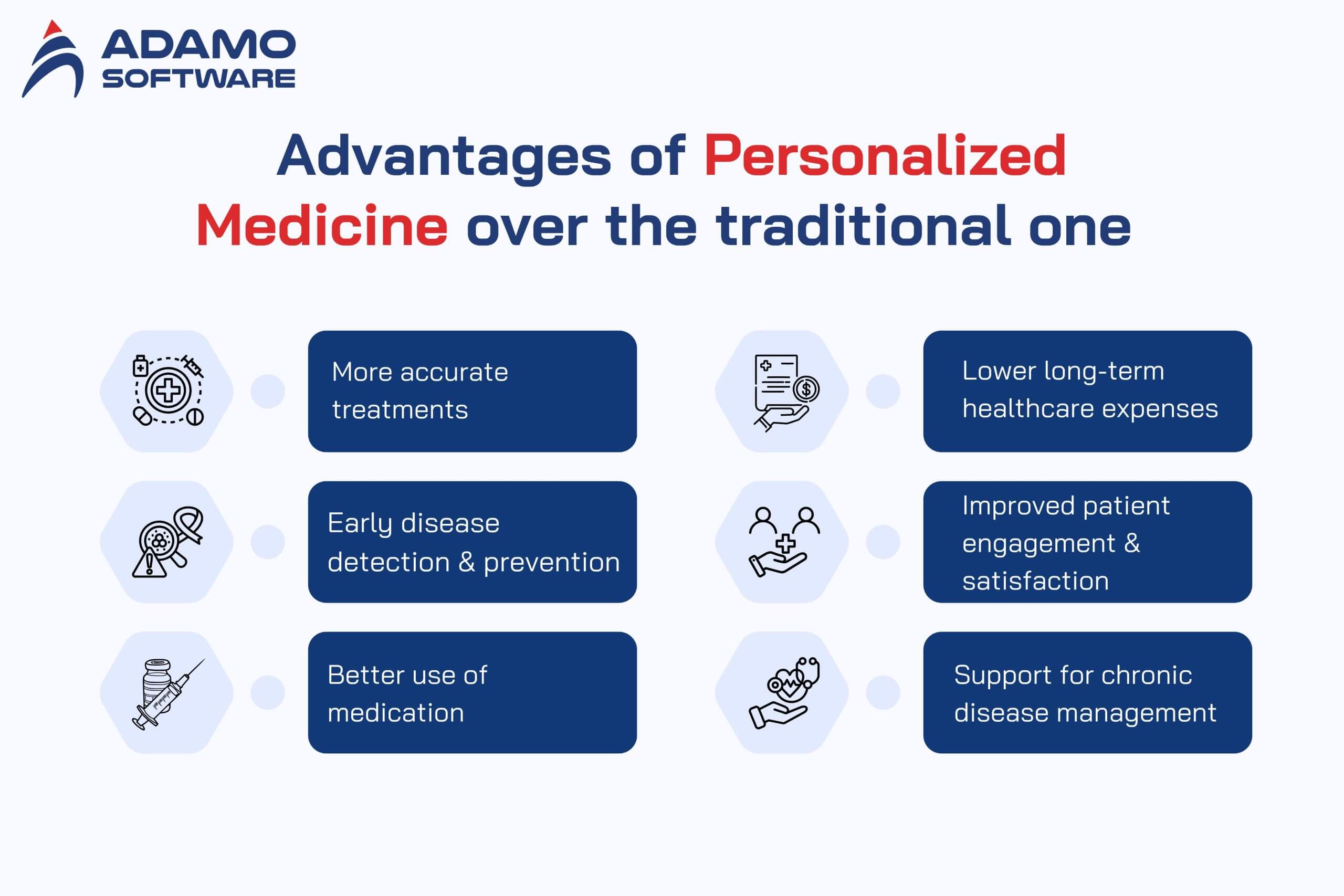
1. More accurate treatments
The main benefit of personalized medicine is its power to deliver targeted therapeutic approaches. The standard medical practice administers single medications to multiple patients who share identical health conditions. Multiple patients show diverse reactions when undergoing these medical treatments. Medical practitioners use genetic patient data to determine medication and treatment responses through personalized medicine. Doctors gain the capacity to choose precise medical treatments for individual patients by accessing this approach. This cuts down the time required for treatment experimentation. The approach leads to both quicker successes and fewer side effects when using medications.
2. Early disease detection and prevention
A main advantage of personalized medicine includes its capability to detect diseases before advanced stages become noticeable. Doctors can see through genetic tests what conditions might affect certain patients before they start showing any physical indications. Identification through personalized medicine reveals which genetic factors elevate the probability of acquiring breast cancer, heart disease, and diabetes. The medical team uses patient genomic information to advise protective procedures, lifestyle modifications, and periodic medical tests for the early detection of diseases. The discovery of concerns at an early stage helps patients achieve improved results. It occasionally blocks diseases from developing.
3. Better use of medication
Traditional medicine provides patients with identical prescription drugs for their conditions, although these do not offer optimal results to everyone. Patients reveal two different outcomes from treatment. They either face medication side effects or the therapy does not affect their condition. Through genetic and molecular data evaluation, personalized medicine enables doctors to identify the optimal medications and correct dosages.
Most patients benefit from genetic testing. It reveals how fast their body breaks down medications. Therefore, it enables doctors to customize their dosage accordingly. The process decreases potential drug complications while improving treatment results and minimizing treatment overprescribing. Personalized medical approaches link individual patients to their best-suited medications, thus providing superior health results.
4. Lower long-term healthcare expenses
The higher starting expenses from genetic testing and complex diagnostic tools will produce financial benefits. Personalized medicine provides long-term cost savings. Early treatment effectiveness identification through personalized medicine enables healthcare organizations to prevent pointless medical costs. It also reduces hospitalization expenses and medication side-effect expenses. Early detection through personalized medicine helps minimize healthcare expenses. It eliminates the requirement for later-stage surgeries and prolonged treatments. Personalized medicine decreases overall healthcare expenses by applying medical funds to the most essential areas and decreasing the number of procedures without medical reason.
5. Improved patient engagement and satisfaction
The focus of treatments on individual requirements increases patient engagement in their medical care. Personalized medicine effectively empowers patients. It enables them to know their health risks and their available treatment options. Patient awareness of personalized medicine leads to improved treatment choices, better healthcare provider and patient relationships, and more effective treatment plans. The treatment plans developed by personalized medicine align with individual patient needs. This results in stronger patient self-perception of healthcare control and higher satisfaction with their medical care.
6. Support for chronic disease management
The management of diabetes, hypertension, and autoimmune disorders demands continuous treatment, and personalized medicine transforms by improving disease treatment protocols. Standard procedures in traditional medicine treat chronic diseases with standardized cures. This might prove ineffective when applied to individual patients. The study of individual disease manifestations under personalized medicine allows healthcare providers to adjust their treatment methods.
Genetic testing can determine the underlying treatment causes when diabetes patients fail to respond to current medications. Therefore, it leads to better alternative therapeutic approaches. Since personalized medicine continuously evaluates patient outcomes and modifies treatment methods. It improves the management of long-term illnesses while enhancing patient health quality with minimized complications.
Personalized medicine establishes smarter treatments that give better safety outcomes and deliver more effective results than standard healthcare practices. Through scientific data analysis, the future of healthcare develops optimized health outcomes for individual patients.
IV. Challenges of Personalized Medicine Software
Personalized medicine holds promising power for healthcare change. However, the implementation of personalized medicine software brings multiple practical problems. Users must handle multiple challenges when implementing personalized medicine software. They include data integration problems, privacy risks, complex genetic data, expensive implementation costs, and ethical issues.
The effective resolution of these obstacles will lead to maximizing the benefits of personalized medicine and expanding its availability for patients’ healthcare providers.
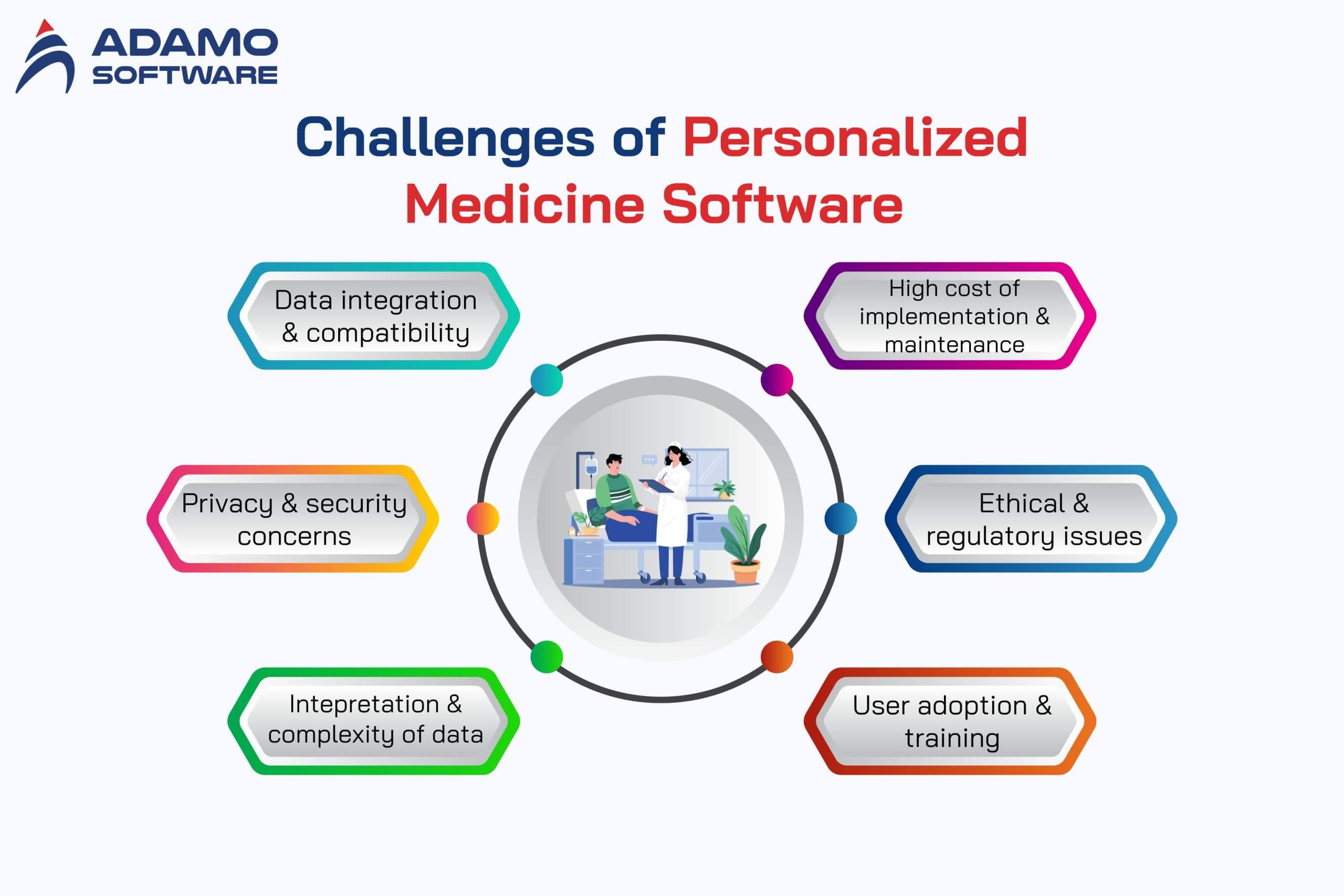
1. Data integration and compatibility
The main barrier in personalized medicine exists in uniting numerous data types that originate from genetic tests, electronic medical records, and lifestyle information. To generate a precise treatment approach, personalized medicine software requires the capability to unify and evaluate sophisticated multi-source patient data. Multiple healthcare systems and software platforms are unable to connect because they are not compatible. Therefore, it creates isolated data pockets. Integration issues slow medical handling while producing data errors that prevent doctors from obtaining all the information needed for therapeutic decisions.
2. Privacy and security concerns
Personalized medicine depends strongly on health data collection consisting of genetic and lifestyle details. This raises major privacy issues alongside security challenges. Healthcare organizations need proper safeguards to protect patient information during storage and transmission to protect patients from breaches. Personalized medicine expansion creates new threats against patient data protection. It leads to larger vulnerabilities for cyberattacks and unauthorized information access. To gain patient’ trust in protecting their information, personalized medicine software must fulfill strict privacy regulations such as the HIPAA requirements in the United States.
3. Interpretation and complexity of genetic data
Personalized medicine heavily relies on genetic data because healthcare providers need this information to predict patient treatment responses. Reading genetic information creates difficulties for healthcare practitioners. The software system applied in patient-centered care requires exact data processing and interpretation capabilities to handle complex multidimensional information. The incorrect analysis of both incomplete data and misinterpreted findings produces therapy errors that might endanger patient health. The precision of genetic data processing through personalized medicine software should enable healthcare professionals to receive straightforward insights when they use this system.
4. High cost of implementation and maintenance
The high expense stands as a primary challenge when implementing personalized medicine software. The deployment and ongoing support of such complex systems prove financially prohibitive, mainly for compact healthcare settings and smaller medical establishments. The development effort to unite genetic information with analysis tools and provide meaningful results presents costs that deter the widespread implementation of personalized medicine systems. The high expense of personalized medicine software includes its implementation cost, perpetual maintenance requirements, regular software revisions, and staff education programs. Many healthcare organizations face monetary obstacles that obstruct their entry to individualized treatment services.
5. Ethical and regulatory issues
The ongoing development of personalized medicine creates persistent ethical and regulatory complications regarding its medical applications. Difficult issues emerge from determining how genetic data can be utilized, who requires such information access, and what storage conditions should apply. Software regulations within personalized medicine remain in development as each region maintains its own set of standards and requirements. Healthcare provider software developers address two major challenges in obtaining regulatory compliance and ethical compliance for personalized medicine applications.
6. User adoption and training
The implementational value of personalized medicine software relies heavily on the effectiveness with which healthcare practitioners operate this tool. Traditional healthcare methods have become familiar to most doctors and providers who show reluctance toward adopting new systems. Medical staff must complete effective training regarding personalized medicine software use with strong data interpretation abilities. The full realization of personalized medicine benefits depends on overcoming medical staff resistance to change by providing sufficient training.
Personalized medicine brings numerous advantages to healthcare. However, healthcare providers must resolve concerns about data collection, privacy, genetic complexity, cost, and ethical biases. Improving personal medicine requires addressing these particular challenges to achieve better effectiveness and accessibility throughout healthcare institutions.
V. The future of personal healthcare solutions
Medical care will embrace individualized treatments by using data regarding patient genetics, lifestyle, and health information. The combination of technology advancements with AI genetic research and wearable devices will make personalized medicine more precise, proactive, and accessible everywhere for effective individualized healthcare.
1. Increased use of genetic data
The increasing availability of genetic testing and decreasing costs will intensify genetic data by personalized medicine to develop personalized treatment plans. Doctoral professionals will forecast which remedy patterns will succeed best while predicting negative treatment outcomes through this data. Accurate medical interventions will replace current trial-based treatment methods responsible for traditional medical practice.
2. Integration of AI and machine learning
The healthcare sector is experiencing fundamental changes through artificial intelligence (AI) coupled with machine learning (ML). These technologies improve personalized medicine by speeding up the accurate analysis of extensive data. By examining patients’ genetic lifestyle and health data patterns, AI systems allow doctors to make more accurate diagnoses. With advancing artificial intelligence technology, forecasts and treatment recommendations will extend to become more substantial in medical applications.
3. Advancements in wearable health technology
Smartwatches and fitness tracker devices presently gather important health data from patients through wearable technology. These devices will integrate more closely with personalized medicine systems to enable continuous tracking of patient health status. Doctors will improve patient care by monitoring treatment responses within this system. Therefore, it permits better medication adjustments and early disease intervention.
4. Preventive healthcare and early detection
The exciting medical advancement through personalized medicine enables doctors to transition their healthcare approach from treatment to prevention of diseases. Doctors detect people who could become candidates for illnesses by integrating genetic testing with lifestyle details and health-tracking tools. The early detection obtained through personalized healthcare helps to initiate preventive care. This may prevent diseases from developing.
5. Improved patient access and affordability
Customized healthcare treatments will spread widely while becoming more economically accessible in future years. The development of more advanced technology with decreasing costs for genetic testing will expand medical care accessibility to individual-specific healthcare solutions for patients. Telemedicine and remote healthcare innovations will enable people across underserved areas to obtain personalized medicine solutions more easily.
6. Collaborative, patient-centered care
Healthcare will advance through collaborative relationships between healthcare suppliers and their patients. Through personalized medicine, patients will gain stronger capabilities to actively participate in making healthcare choices. Through personal data analysis, patients can obtain better knowledge to make sound decisions related to their disease management and wellness. By centering healthcare around patients, the results will improve while delivering treatments that fit precise personal requirements.
Moving forward in the world of healthcare, we will transition into actively managed, patient-driven medical care. Public accessibility to cost-effective personalized medical treatments with improving healthcare outcomes will provide patients with better control over their health decisions. Personalized medicine exists as an essential part of developing the future of medical care.
VI. Why choose Adamo Software as the ideal partner for Personalized Medicine Solutions
Personalized medicine solutions find this system advantageous. It provides sophisticated, programmed applications that customize software solutions specifically for healthcare providers. Our system operates smoothly with the existing healthcare infrastructure. Therefore, it enhances user adoption of individualized treatment methods. Our dedication to innovation makes personalized medicine solutions available for any healthcare environment while maintaining their effectiveness at scale.

Adamo Software’s platform shields medical data while providing intuitive user interfaces with live data analysis. This helps healthcare providers deliver customized healthcare solutions. Users benefit from our platform because it enables clients to make better decisions and leads to better healthcare results. It improves patients’ health while enhancing their experience. Adamo Software provides personalized medicine solutions with essential tools that meet present requirements for patient-centered care delivery.



